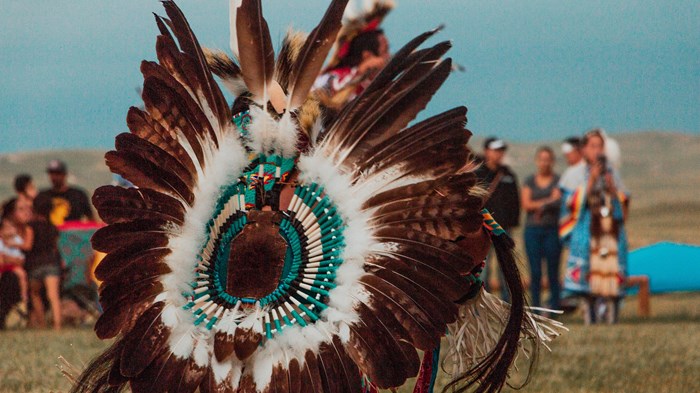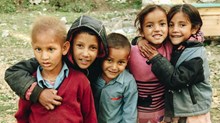You May Be a Humanitarian, but You Don’t Operate Apart from History

In the course I teach on Refugees and Forced Migration, we spend part of the first two classes listening to refugees tell their stories, and sharing what we know about our own family’s migration story. Some of us know a lot, some are just a generation away from being refugees, some of us don’t know much at all.
This past semester, in the third class, we started by listening to indigenous/Native American voices. Our guest, who lives in Chicago and does educational outreach, had to cancel at the last minute. We didn’t get to hear about her tribe, but we watched a video she sent about tribes that had lived in the Chicago area where we’re studying. We then watched a Land Acknowledgement held at another conference (recounting the experience of indigenous people on the land where they were meeting land) and a video by Richard Twiss, a Lakota theologian reflecting on his experience as a Native American and Christ follower.
Why?
Taking time in class today looking at the history of the land we’re on isn’t typically, as far as I know, part of refugee and forced migration studies. Or at least I know I haven’t done this in previous years when I taught the class. It’s covered in different courses. But I want—and I want my students—to be stepping into this topic aware of the important stories that shape and surround us. I also have found over the years that the work of serving others and doing justice should involve the practice of confession.
We don’t help others—like refugees or internally displaced people—as a historical, neutral helpers. If I were to do that, I’m even more in danger of hurting instead of helping, of being susceptible to a so-called white savior complex.
In a different class this week, we read from the book of Nehemiah, who says at the beginning of that story, “I confess the sins we…including myself and my father’s family, have committed against you.”
He wasn’t operating outside of history. His confession goes back at least one generation.
I’m sure there are even better ways to lead this discussion in class, but I’m grateful to have learned this much. I’m still a beginner. What I’ve learned from people like Richard Twiss has been an important part of my following Jesus. With my students, I keep seeking to grow in confession, humility, and hopefully getting better at helping others.
When I worked in Albania and Kosovo during and after the Kosovo war, I took history books in my duffle bag to read. When I lived in Haiti, I read long histories. This was essential. The same should apply to where I live and work in Chicagoland. This too has a pained and complex history.
In the video we watched, Richard Twiss quotes a friend talking about Christianity that “listens like a brother and fights like a warrior for the vulnerable in its midst.”
Not all the missionaries, humanitarian workers, and people working for justice in communities in the U.S. that I’ve met and worked with over the years approach take history and its implications seriously. This hurts their ability to help—and also to grow.
Slow down and listen. What land do we stand, work, worship, eat on?
Slow down and listen. What are the stories we join into with the story of our own lives?
Slow down and listen. God’s story in Scripture is one of people on the move, for reasons good and bad. As we seek to join in God’s story of redemption, that should include listening to the stories of the people around us and before us, so the story of our helping each other can keep getting better.
The Better Samaritan is a part of CT's
Blog Forum. Support the work of CT.
Subscribe and get one year free.
The views of the blogger do not necessarily reflect those of Christianity Today.






















